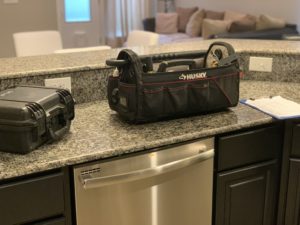What To Expect When You’re Inspecting
When you are buying a home for the first time or the 8th time, you’re likely to run into many processes that you have or haven’t been through before. One of the most important parts of the purchasing process is your property inspection. It may seem daunting, but if you know your role and the role of others, it can make the process less stressful. Here is what you should expect for each role and step in the property inspection process.
Why Have an Inspection?
The reason for having a home inspection is to find out more about the condition of the home. All homes undergo wear and tear over the years so we need to make sure there are no potential major issues and be able to resolve any that may come up. Please note- an inspection and an appraisal are NOT the same thing! Inspections are not required- yet highly recommended- to make sure there are no hidden defects on a home. An appraisal is ordered by a lender (or by a buyer if paying cash) to ensure the value of the home is equal to the sales price.
The Buyer
Your job will be to learn about the property during inspection. Before the inspection, you should prepare by looking over the property disclosures or any other documentation that you’ve received up until that point. Make a list of any questions or concerns you have and address any issues that the listing agent may have pointed out. Ask your agent what the typical inspections are for your market and make sure you set aside an hour or two for the inspection.
The Buyer’s Agent
Your agent should be with you and help to walk you through the inspection. Your agent should know what to look for during inspections and be able to let you know what is important and needs to be addressed before the transaction is complete and what is a quick fix and not necessary to repair. If you are not able to attend the inspection, the buyer’s agent will be there.
The Listing Agent
In most cases, the listing agent will not be present for the inspection. The buyer’s agent and listing agent will negotiate after the inspection and work together to get the major repairs remedied.
The Inspector
You will hire the property inspector as the buyer. You can get a referral from your agent to find a licensed inspector in your state. The inspector is there to explain what he/she sees as a potential issue (big or small). They are not there as a contractor and will not be fixing the problems, simply inspecting the property and overall state of the house. They may recommend further evaluation in specific areas by a licensed contractor that specializes in that particular area. Just because further evaluation is recommended doesn’t always mean that there is a major problem. It’s to make sure there isn’t a problem or address one.
The Cost
An inspection around this area should be anywhere from $250-600. The variation on cost is generally based on the size of the home. Cheaper isn’t always better, however, very expensive isn’t either.
The Report
A report will not be limited to but should cover the following below.
- Mold
- Roof
- Windows
- Plumbing
- Appliances (staying with the house)
- Fireplace (not all inspect a fireplace)
- Foundation
- Drainage
- Electrical System
- HVAC
After the report is issued, there might be items buyers want to be remedied, but shouldn’t expect. These will include items that are minor.
Here are a few examples:
- Bathroom caulking
- Exterior painting
- Loose doorknobs
- Dirty carpet
- Installed hand rails for exterior steps
Final Thoughts
A home inspection is an essential process in a home sale. As a buyer, you should never waive a home inspection if at all possible. The amount of money a home inspection costs (in the grand scheme of things) is well worth it.
If you are unsure about anything make sure you ask the home inspector any unanswered questions that you may have. It is not unusual to read the inspection report and discover you’re unsure about something. You have your trusted team to help you through the process!



Leave a Reply